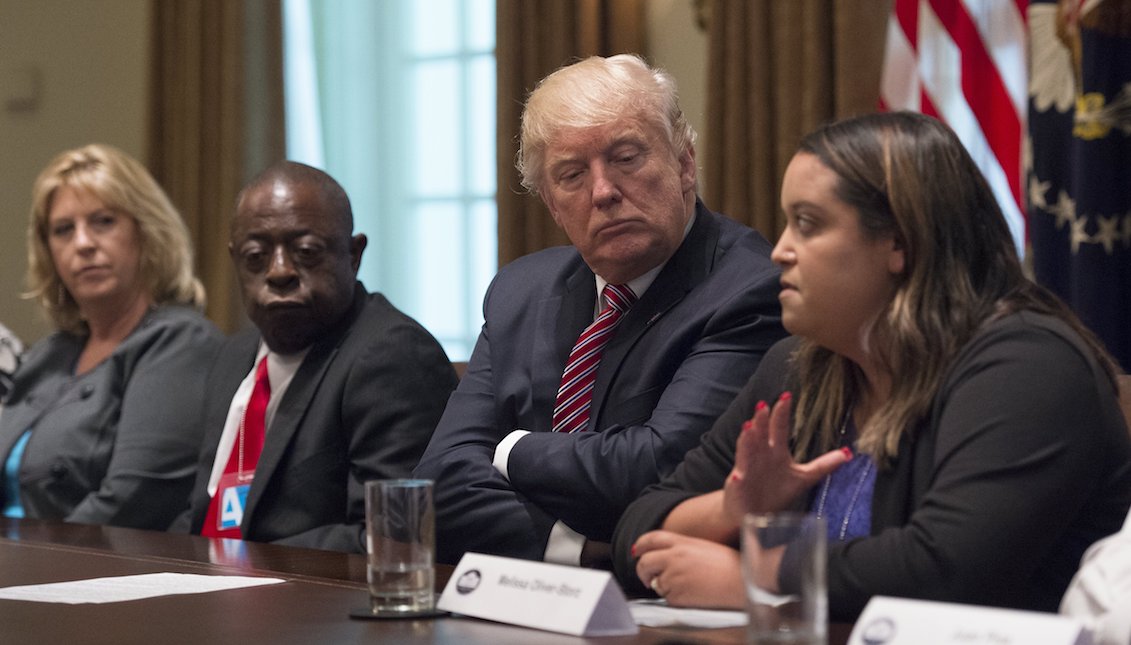
Congress could approve two laws against undocumented immigrants
During the vote today, Congress will evaluate two laws that aim to combat undocumented immigration from two fronts: sanctuary cities and deportation.
"No Sanctuary for Criminals" (HR 3003) and "Kate’s Law" (HR 3004) will be the two bills put to the vote today, after Republicans got enough votes for their evaluation.
HR 3003 seeks to eliminate federal funds from the Department of Justice and National Security to sanctuary jurisdictions "that do not comply with federal arrest warrants," Univisión reported.
The same law would allow victims of crimes committed by undocumented immigrants to sue Sanctuary Cities and local law enforcement.
Legal analyst James Goodnow told ABC 15 that this bill is the Republicans' way of fulfilling their electoral promises: “The GOP lawmakers pushing the bill argue that the steps are necessary to keep citizens safe from crimes committed by illegal immigrants,” said Goodnow. “Those opposed to the bill argue that this type of legislation not only violates fundamental principles of federalism, but it also strips local law enforcement officials of the ability to exercise their judgment about how to best keep their communities safe.” Goodnow also said that even if the law were passed, its fight would be "far from over."
On the other hand, the "Kate’s Law," which bears the name of Kate Steinle - a 32-year-old American who passed away last year in San Francisco after a bullet fired by undocumented Mexican immigrant Francisco Sanchez took her life - seeks to stop undocumented immigrants in national territory, even if they do not have a criminal record.
Steinle's case used Francisco Sanchez as a scapegoat, as the immigrant had been deported several times and returned to the United States illegally.
According to Univision, "The Immigration and Customs Enforcement (ICE) had asked the authorities in San Francisco to arrest Sanchez, but the San Francisco police released him on the grounds that people who are in the country without authorization are delivered to immigration officers unless there is an arrest warrant. "
RELATED CONTENT
After President Trump met Wednesday with relatives of victims of acts committed by undocumented immigrants, the House Judiciary Committee gave the go-ahead to begin voting on both proposals today, "ensuring they had the 18 necessary votes in the plenary. "
Even though the House vote is partially assured, the Senate will determine the future of both laws.
According to The Hill, Democrats plan to vote block against the sanctuary law, "but the presidency of the bench would have given freedom to decide on the 'Kate’s Law.'"
Both the American Civil Liberties Union (ACLU), United We Dream and the Los Angeles Latino Movement USA have stated that both laws not only represent constitutional violations but that their true intention would be to "authorize the force of deportations and the anti-immigrant agenda of President Trump ".
This was stated by Lorella Praeli, Immigration and Campaign Director of the ACLU to Univision, asserting that the law against sanctuary jurisdictions "would force state and local police agencies to violate the Fourth Amendment by requiring them to imprison people without due process or probable cause at the request of federal agents. "











LEAVE A COMMENT: